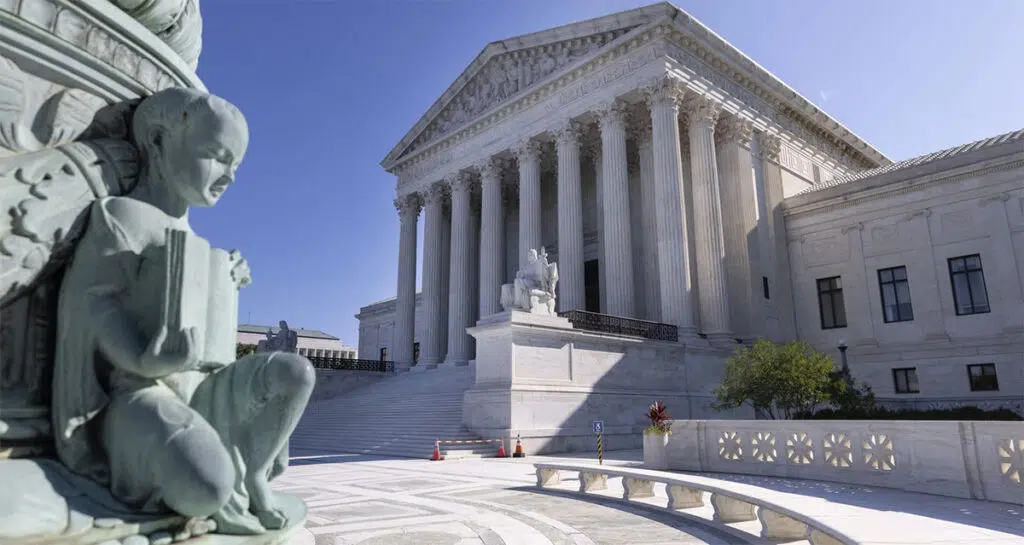
U.S. Supreme Court Deals Another Blow to the Anti-Democratic Federal Administrative State
The U.S. Supreme Court last week decisively blocked yet another unconstitutional action by a federal agency.
The cases at issue are Axon Enterprise v. FTC and SEC v. Cochran. The private parties in these suits challenged both the Federal Trade Commission (FTC) and the Securities and Exchange Commission (SEC) on the broad grounds that they operate in an unconstitutional manner and in violation of our Separation of Powers doctrine.
In these cases, the Supreme Court answered a simple question: do private parties have to go through the lengthy and costly administrative process before they can seek review of their constitutional challenge in a federal court? The Court—all nine justices in a rare display of unanimity— said “no” holding that private parties can take a constitutional challenge to the federal agency itself directly to federal court without first ‘exhausting the administrative process and remedies’ as required by the agency’s own regulation.
This is a very important decision that holds great promise for individual liberty.
Why do I say that?
Because, the U.S. Supreme Court is pushing back on the decisions of federal agencies that were never really second-guessed with federal courts simply holding that, as long as the agency interpretation of the statute at issue was “reasonable,” a federal court would not reverse the agency’s ruling.
Well, this allows federal agencies to exercise an interpretive power that produces the functional equivalent of legislation that overrules even state law, as well as the judicial power the agency often uses to pronounce ‘legislation’ as constitutional—powers not intended by Congress in the legislation that created the federal law.
There is no place in our constitutional scheme for powerful federal agencies to decide what the laws applicable to their agencies mean, but for many years the federal courts and Congress gave up their most important role—interpreting statutes and adjudicating agency disputes—instead choosing to defer to “agency expertise.”
This is quite dangerous because federal agencies have often abused their authority while being largely unaccountable to Congress and the courts.
How so?
Well, our U.S. Constitution clearly establishes a Separation of Powers structure. This means our three branches of government, Legislative (U.S. House and U.S. Senate), Executive Branch (president) and Judicial Branch (courts) all have distinct powers that cannot be increased or decreased. In other words, our Constitution requires all three branches to “stay in their own lanes.”
Well, many of our powerful federal agencies have gotten “out of their lanes” and assumed powers they simply don’t have. Until now, no U.S. Supreme Court consistently called them out on it and invalidated agency actions.
So, what do these two cases mean?
That private litigants may now go directly to federal court to make a constitutional challenge to the agency itself instead of enduring the federal agency adjudication process before they can go to federal court.
The Wall Street Journal describes it this way: “independent agencies have a vested interest in protecting their power. And no agency is going to rule that its procedures or structure are unconstitutional. The recourse has to be in federal court, where the normal standard of judicial review applies, to vindicate the constitutional rights of individuals who challenge agency actions.” (WSJ, 4-14-23).
No federal agency can be allowed to be both prosecutor and judge at the same time, and this is the constitutional defect these two Supreme Court decisions are intended to correct.
Here’s an example of agency abuse:
The EPA previously decided that “navigable waters” even includes ditches—any ditch, even a man-made ditch—in a farmer’s field, for example, that floods once a year when it rains; this absurd interpretation of “navigable waters” would also include depressions or low points in a field that is dry most of the time except when it rains. However, once the farmer’s flooded field or ditch is deemed “navigable waters” under federal law, harsh EPA regulations kick in.
That’s insane.
It’s so very encouraging to see the highest court in our land no longer passively deferring to these agencies.
Our Founders feared that when the doctrine of Separation of Powers was violated, tyranny would result. In fact, as James Madison warned, “the accumulation of all powers, legislative, executive, and judiciary, in the same hands… may justly be pronounced the very definition of tyranny.”
These two U.S. Supreme Court decisions represent a significant victory for individual liberty and constitutional governance by the Consent of the Governed. (i.e., We the People).



